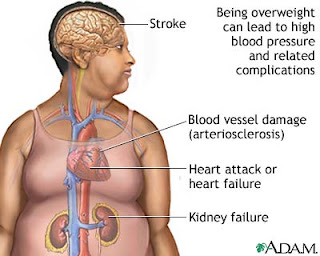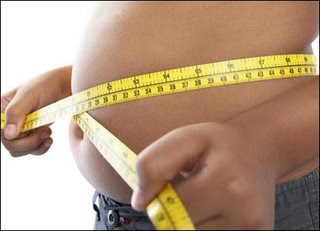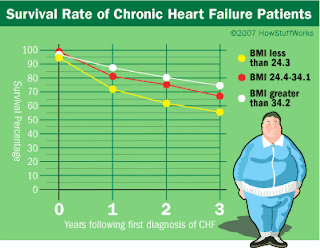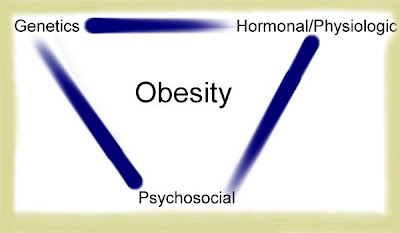
This weight loss and health article is going to get straight to the point. It is not in your interest to 'beat around the bush' if you are suffering from obesity. Some people will have you believe that large is good or overweight is attractive. I would stress to you that no matter what anyone says to dress up obesity so that feelings are not hurt or whatever the reason, being obese is not good for your health, your longevity and the function of your body and it's crucial parts. In addition, most people are in a better frame of mind once they begin to lose excess weight. Read these points carefully -
1. Carrying around excess body fat will decrease your energy level. Having just 10 lbs. of excess body fat is like carrying around a 10-lb. bag of lard.
2. Your heart has to work overtime to support the extra weight. Obesity has a harmful effect on your entire cardiovascular system. Your cardiovascular system includes your heart, your lungs, and all of your arteries and veins.
3. You may develop breathing problems. For example, sleep apnea is a breathing problem that causes you to stop breathing for short instances during sleep. Sleep apnea can also cause snoring.
4. Extra weight will take a toll on your joints. Obesity has also been linked to gout, which is when uric acid that cannot be excreted collects in the joints of the toes.
5. Obesity can cause infertility.
6. Type 2 Diabetes has been linked to obesity.
7. Extra weight will put you at a higher risk for certain types of cancer. Obese men have a higher risk of developing colon, rectum, or prostate cancer. Obese women have a higher risk of developing gallbladder, breast, uterine, cervical, or ovarian cancer.
8. Being overweight and obesity are associated with increased risks of gall bladder disease, incontinence, increased surgical risk, and depression.
9. Obesity can affect the quality of life through limited mobility and decreased physical endurance as well as through social, academic, and job discrimination.
10. Being overweight may have an effect on your self-esteem that, in turn, will have a negative effect on your overall health.
The Sad Statistics about Obesity
If you are overweight or obese you are certainly not alone. Obesity is a serious degenerative disorder whose severity rate is as lethal as most plagues.
Obesity can be as deadly as smoking, AIDS or any other of the slow deaths that are caused by contemporary afflictions.
The value of examining statistics is that it can help you predict your own likelihood of developing obesity in your life time or how you may have developed it as a result of gender, age, race, geographical location or other predisposing factors.A look at the following statistics will show you. Not only is the world round, it is also fat!
The Prevalence of Obesity
39.8 million American adults or more than 57% of North American adults are overweight (American Medical Association).
More than 60 percent of Americans aged 20 years and older are overweight. One-quarter of American adults are also obese (American Medical Association).
Over 300 million adults are estimated to be overweight worldwide (WHO World Health Report, 2003).
11% of children are obese in the USA (World Heart Federation Fact-Sheet, 2002).
50% of women aged 20 to 74 are overweight or obese in the US (The National Women’s Health Information Center).
These figures can be concerning and if you would like to consider a path of safe and easy weight loss then you should think and act carefully today. Remember, today is a gift...that's why it's called the present! It's what you do today that will decide how successful you are with your health and weight loss decisions.






























